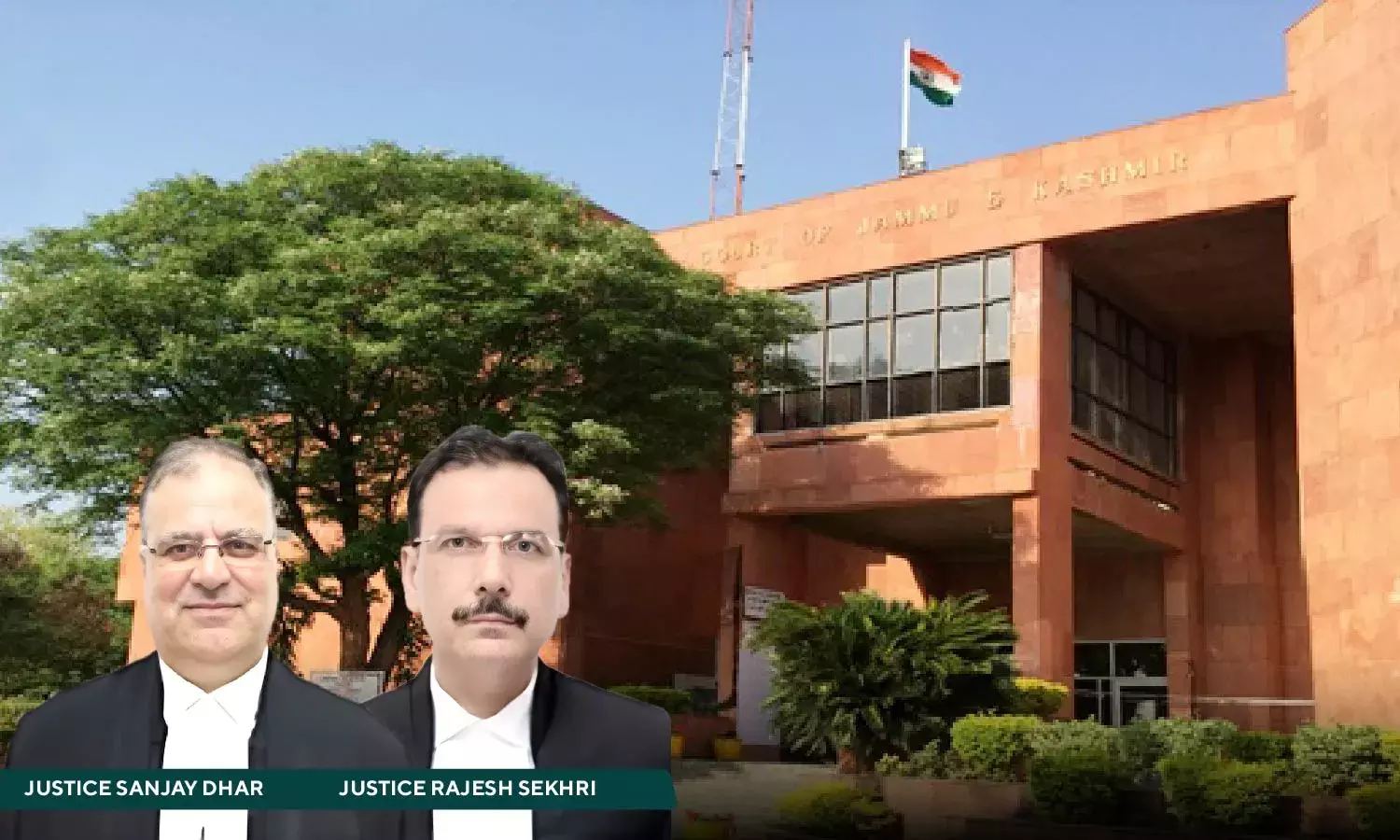Conviction Can’t Be Sustained Based On Surmises & Conjectures: J&K&L High Court Upholds Acquittal Of BSF Men In Firing Case During Kargil War
The Jammu and Kashmir and Ladakh High Court has upheld the acquittal of BSF (Border Security Force) men in a firing case during the Kargil War on the ground that the conviction cannot be sustained based on the surmises and conjectures.
A Division Bench of Justice Sanjay Dhar and Justice Rajesh Sekhri held, “It is by far crystallized and trite position of law that suspicion, howsoever great, cannot take place of legal proof and conviction cannot be sustained merely on the basis of surmises and conjectures. The enunciation of law on this point is traceable to the series of decisions rendered by the Apex Court.”
The Bench said that there is no scope to raise hypotheses of guilt against the accused persons.
AAG Amit Gupta appeared for the State/appellant while Senior Advocate P.N. Raina appeared for the accused/respondents.
In this case, an appeal was filed against the judgment passed by the Additional Sessions Judge vide which the respondents were acquitted of the charges for offences under Sections 302, 307, and 34 of the RPC (Ranbir Penal Code). As per the State, on the intervening night of 16/17th of July, 1999, an army patrol party was on patrol towards a forward post, and when it reached the BSF bunker, the respondents who were BSF personnel on duty opened fire on the patrol party whereby three Army personnel were killed and one of them sustained bullet injuries.
Initially, such an incident was treated as an operational accidental death but the injured personnel of the patrol party revealed the actual story alleging the respondents of open indiscriminate firing on the patrol party. Thereafter, an FIR was registered and the High Court quashed the committal proceedings and remanded the case back to the Committal Court. On transfer of the case from Principal Sessions Judge to the trial court, the respondents were acquitted.
The High Court in view of the facts and circumstances of the case noted, “From the conspectus of the entire case and a perusal of the record, it appears that the unfortunate incident in which three precious lives of Army personnels were taken away and one jawan got seriously injured, took place due to the breakout of ‘Kargil War’. In view of the emergent circumstances, forces on the Border were ordered to be vigilant and movement on the border was restricted as there were shoot at sight orders, in order to prevent the terrorists and army of the enemy country to cross over to this part of the country. Pertinently, the restrictions were not for the common people only but forces were also advised to exercise restraint to coordinate between themselves as and when they were expected to move along the border.”
The Court further noted that the coordination between the forces, as per the testimonies of the witnesses, was ensured with the help of passwords, which were being changed on a daily basis.
“It has come on record that at the time of unfortunate incident, it was raining and there was thunderstorm and lightening and there was firing from across the border. Indian Army also retaliated by opening fire towards the enemy and it appears that three Army persons were killed and one sustained injuries in the cross firing, due to total lack of coordination between the Army and the BSF”, said the Court.
The Court observed that the respondents have been roped in merely based on suspicion, otherwise, there is no evidence to establish that they had deliberately fired upon the army patrol party.
“… though conviction can be sustained on the basis of sole testimony of a witness, however, conviction cannot be sustained on the basis of suspicions, conjectures or surmises. The sole testimony of the injured has not been corroborated by any prosecution witness and does not inspire confidence to sustain conviction. The prosecution evidence is otherwise found discrepant on material factual aspects”, held the Court.
Accordingly, the Court dismissed the appeal and upheld the judgment of the trial court.
Cause Title- State of J and K v. Gulji Bhai & Ors.



